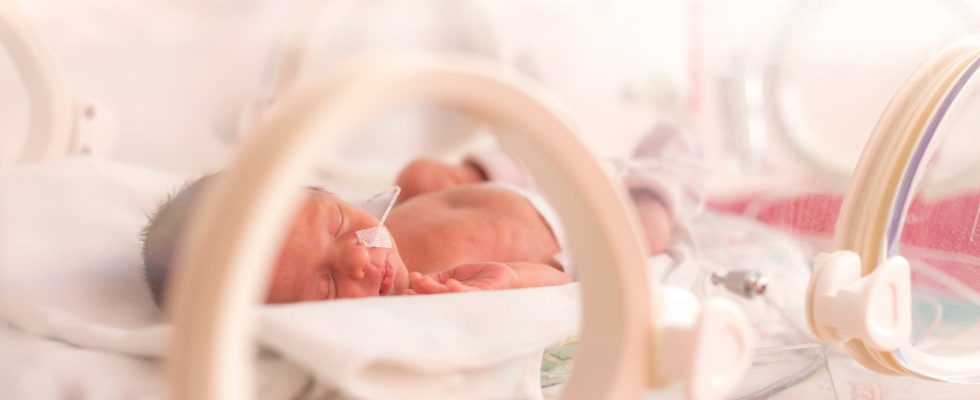SARS-CoV-2: The number of premature births increased significantly due to Corona
If an expectant mother becomes infected with Sars-CoV-2, the risk of a premature birth increases significantly, as a study from California shows. Vaccinations reduce the risk. Pregnant women should therefore be advised to receive booster vaccinations, according to the researchers.
© Ondrooo / Getty Images / iStock (detail)
The earlier an infant is born before the expected due date, the worse the chance of survival and the more likely health complications occur.
The risk of premature birth increases significantly when pregnant women become ill with Covid-19, shows a study published at the end of November in »Proceedings of the National Academy of Sciences« (PNAS) was published. During pregnancy, Sars-CoV-2 increases the risk of premature birth and the long-term consequences that are often associated with it from 7.1 to 8.3 percent. The research team led by Florencia Torche and Jenna Nobles from Stanford University compares this effect to an embryo that was exposed to “strong smoke from a forest fire for 20 days.”
The study is based on a comprehensive analysis of population data on siblings born in California between January 2014 and February 2023. The researchers not only discovered that the risk of premature births was significantly increased before the 37th week of pregnancy in the case of corona infections, but also that this relationship was already evident before the 32nd week.
The connection between Covid-19 infection and premature birth was strong in the first two years of the pandemic, according to the researchers. This effect then suddenly disappeared in 2022. The scientists attribute this to the protective effect of vaccinations. “In the zip code areas with the highest vaccination rates, the risk of premature births decreased much more quickly,” says Nobles in a press release. “By the summer of 2021, a Covid-19 infection during pregnancy no longer had an impact on the risk of premature births in these communities.” According to Nobles, it took almost a year longer for this to happen in the zip code areas with the lowest vaccination rates.
The results suggest that the vaccinations had a protective effect and “prevented thousands of premature births in the United States.” According to the researchers, this is a good argument for expectant mothers to refresh their vaccination. At the beginning of the vaccination campaigns, some pregnant women were concerned that vaccination could harm the fetus. “The results here are compelling evidence that what will actually harm the fetus is not vaccinating,” explains Jenna Nobles.
The team recently emphasized that the danger of Covid-19 infections is not yet over, as new Sars-CoV-2 variants continue to emerge that could break the protection provided by previous vaccinations. In addition, the rate of booster vaccinations among pregnant women is currently low.
Further studies are needed to examine the effects of infections in the first or second trimester of pregnancy and the connection between infections and miscarriages in more detail. It is assumed that a Covid-19 infection leads to inflammation of the placenta and can therefore cause premature births. These can result in serious health complications for the infant, such as neurological impairments, movement disorders, deafness and a below-average IQ.
![]()
Please allow Javascript to maintain the full functionality of Spektrum.de.

